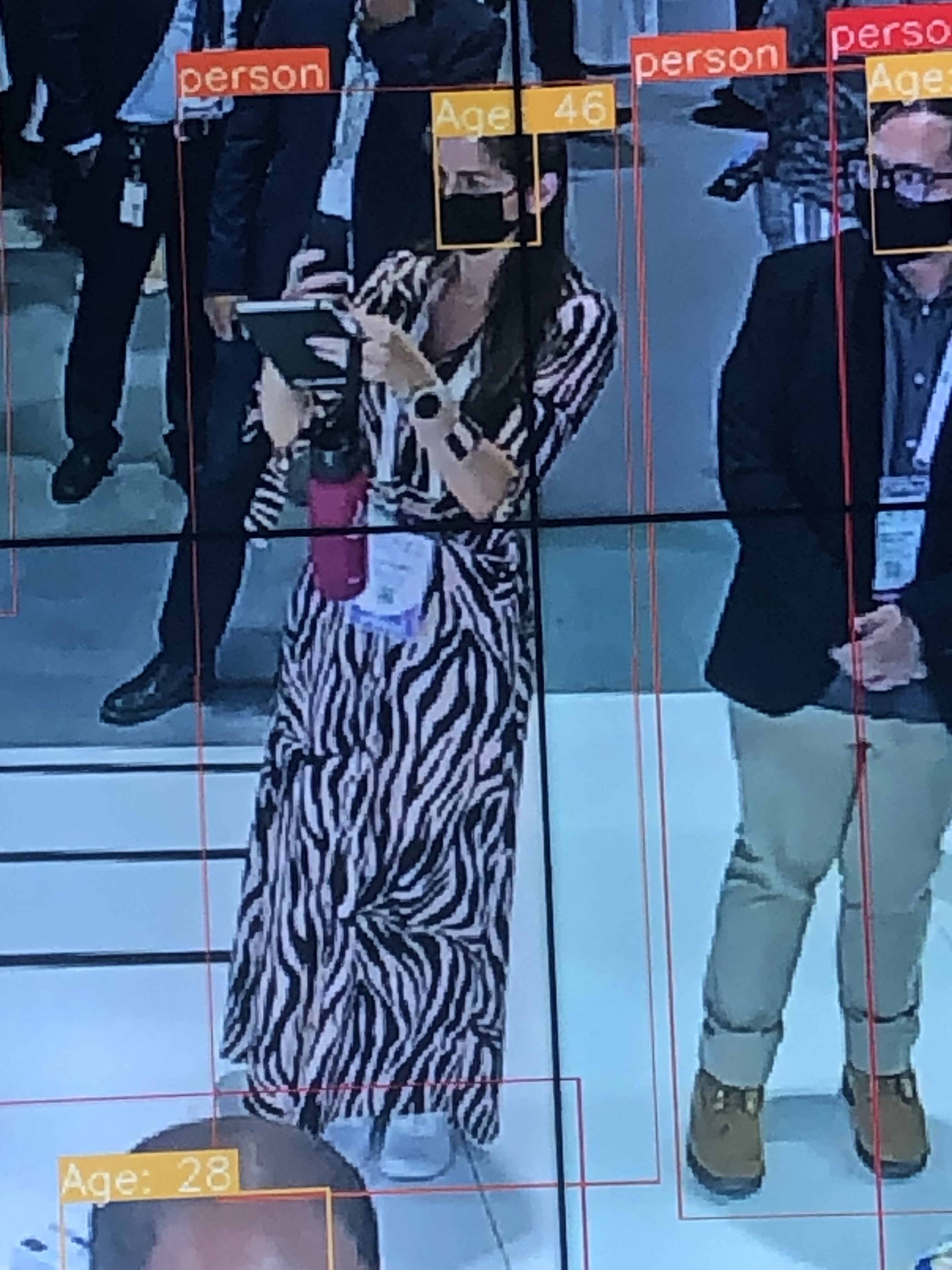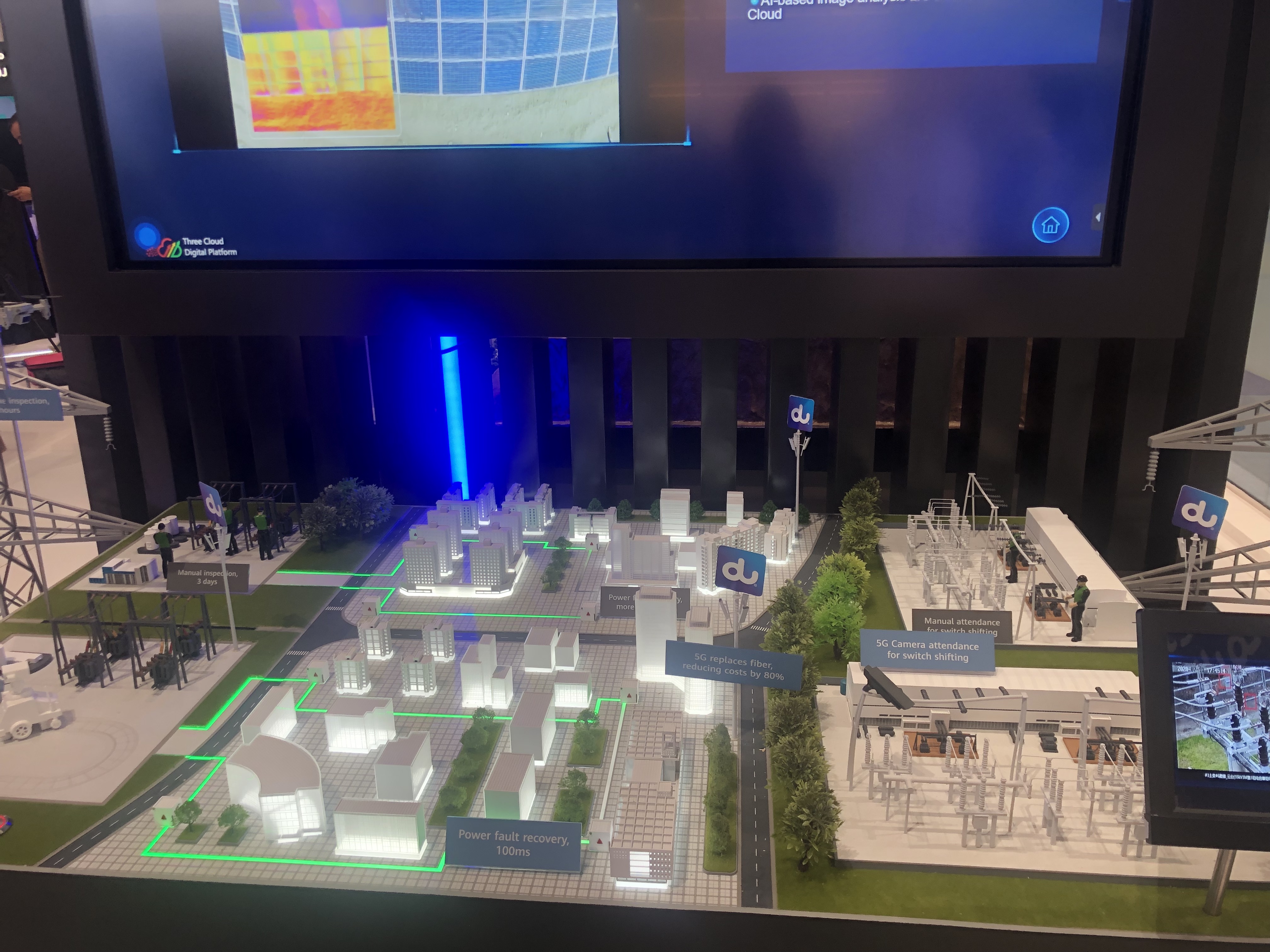What I learned while attending the GITEX Conference 2021
GITEX is a world-leading conference, hosted in Dubai which I had the pleasure of attending. I was delighted to attend by invite of the UAE - UK Business council (UUBC), representing Kainos as a technology leader and as the leading partner for digital transformation for the UK government. There were nearly 1,000 speakers covering topics like AI, data, blockchain, skills and D&I and the event also features a tradeshow, with over 1,000 organisations from across the globe contributing.
I was joined by Kieran Barber who leads the Kainos Public Sector division, and Marc Nevin one of our Senior Software Engineers in exploring the event, meeting fascinating people and hearing brilliant and engaging stories along the way. See an overview of this below:
- I was delighted to have met Tannya Jajal, a technology leader in VMWare, who is also very active in influencing the policies for the use of technology in the Dubai government. In Dubai, there is a huge amount of technological experimentation and policy needs to catch up, but with individuals like Tannya at the forefront, they'll be challenged to make clear progress here. We spoke with Tannya about how AI is often modelled on historic data and human behaviour, and so it will be inherently flawed and biased. As AI is used, that bias will creep in and misuse can happen easily. We need to be sensitive to this and be deliberate in our decision making to mitigate this. In Kainos, we're closely tracking the likes of the IEEE standards and working with experts in this field to lead the way in providing an ethically sensitive approach to the delivery of our AI services. See some of Tannyas insights from the event here.
- We spoke with Dr Mohammed Yaqub, a professor at the Dubai University of AI. This is a one of a kind university, with a sole focus on AI. 100% of their placements come with a full scholarship and the three courses they offer are masters and PHD level, focusing on Machine Learning, Computer Vision and Natural Language Processing. They have 135 students currently and while they've only been running since January 2021, they have already made significant breakthroughs, publishing research papers and winning multiple awards at the prestigious MICCAI awards. They are teaming up with organisations across the globe to achieve this, such as Oxford University. Their work in healthcare includes detecting pulmonary embolism in advance of it occurring. This condition leads to 60-100k deaths per year in the US alone. What's particularly interesting is their desire to make healthcare accessible and affordable. One early example is the handheld CT Scan tool they're working on, which will allow you to perform a CT Scan at home, using AI techniques to process your results and guide you on what to do next. There are many challenges in this space, including accuracy levels and accountability for error, but that's all part of the research and exploration ongoing to ensure the value from this device is achieved.
- There was a huge amount of advanced technology using AI on display. One brilliant, and scary, example was a video and TV screen which tracked individuals movements, predicted their gender, age, mood and other features. Such tech is powerful but needs to be treated sensitively to protect individuals privacy and dignity. There's nothing like seeing your predicted age on screen in front of a large scale conference like this, to hammer home the importance of careful consideration of possible negative human impacts.

- The approach to identity verification was interesting too, with every citizen having an ID, verifiable through their UAE Verify system. This includes a centralised data store of all citizens. What's particularly interesting is just how far this goes, enabling not just identity data to be verified but also additional facts, such as what university courses individuals have completed. The central verify system has access to an extensive range of data, enabling significantly more centralised control.
- There was a significant area at the event focused on the UAE government work, where the regions most forward-thinking of the technology in use/ being piloted were on display. Including heavy use of 5G to support autonomous mining, drone and tagging technology, end to end tracking of imports from licensing through to destination.

- The UAE are not exempt from the D&I challenges of the UK either, with significant drops in the percentage of females in STEM between primary and university education, and even more so from STEM career entrants to the top roles. Initiatives underway are similar to what we see in the UK and Europe and there's a growing recognition that change needs to start at home, with the heart and minds of sons and daughters. The key advice from the one-panel discussion on this was:
- Be passionate, don’t be afraid, build resilience
- Build a process and trust in it
- Self-affirmation and talk about what you’re doing to others
- The InvestNI team in the UAE gave us a particularly warm welcome, they do a fantastic job of bringing together people with shared interests, enabling relationship building which can impact learning and business development. See more on this here.
This was a huge event and a privilege to spend time with such incredible people, to hear their stories and discuss the direction of travel for technology. I can't finish without a mention of the wider Dubai experience. Dubai is currently hosting a 'Connecting Minds, Creating the Future' themed expo. This is a mega event, spanning 4.38km2, with pavilions covering geographies across the globe. It featured very creative uses of immersive technology, light shows, music and dance, food, water displays and included the largest cinema screen in the world in the shape of a dome. This is all sponsored by the Dubai government, and they put on a spectacular display.
